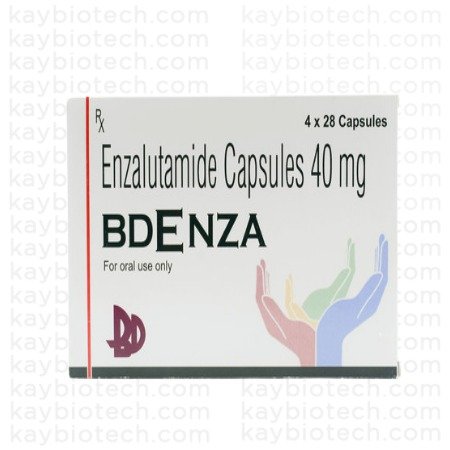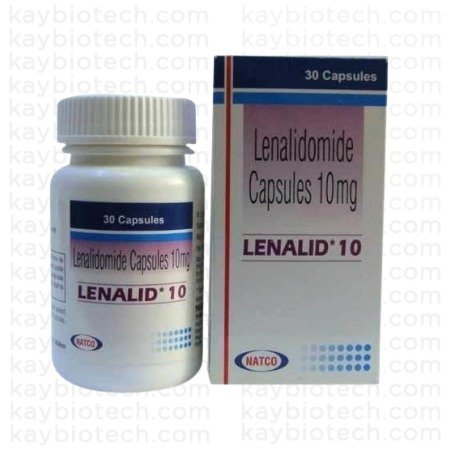
What is Cancer?
30-May 2022What is Cancer?
Healthy cells in our bodies divide and replace themselves in a regulated manner throughout our lifetimes. Cancer may begin basically anywhere in the billions of cells that make up the human body. Human cells normally develop and multiply (via a process known as cell division) to generate new cells as needed by the body.
Cancer begins when a cell is changed in some way, causing it to multiply uncontrollably. These bad cells than start to spread into other body parts making it more serious.
Cancer is the world's second largest disease which leads to death. However, because of advancements in cancer detection, therapy, and prevention, survival rates for many forms of cancer are improving drastically.
Most cancers form tumours, but it is important that not all tumours are cancerous. Tumours that are benign, or noncancerous, do not spread to other regions of the body or cause new tumours. However, tumours that are malignant, or cancerous, push out healthy cells, disrupt physiological functioning, and rob the body of nutrition.
How cancer develops?
Cancer is a hereditary condition, which means it is caused by abnormalities in genes that control how our cells function, especially how they divide and thrive.
The fundamental units that build the human body are cells. Cells divide and expand to produce new cells when the body requires them. Cells normally die when they get damaged and gets replaced by the new and healthy cells.
When genetic alterations disrupt this normal mechanism, cancer develops. Cells begin to expand out of control. These cells may combine to produce a tumour. Tumours can be malignant or noncancerous.
_1653547461.jpg)
Symptoms and sign of cancer
Cancer symptoms and signs differ depending on whatever area of the body is afflicted. Few of the most common symptoms are:
- Bowel or bladder habits that have changed
- Coughing or difficulty breathing
- Swallowing problems
- Hoarseness
- Consistent indigestion or discomfort after eating.
- Muscle or joint pain that is unexplained
- Night sweats or persistent, unexplained fevers
- Weight fluctuations
- Skin changes such as yellowing, darkening, or redness- heal or alterations to existing moles, are all signs of a problem.
- Bowel or bladder habits that have changed
- Coughing or difficulty breathing
- Lumps under skin
Types of Cancer
Therer are different types of cancer which are mentioned below -:
Carcinomas - The skin or the tissue that covers the surface of internal organs and glands is where a carcinoma develops. Carcinomas are often solid tumours. They are the most prevalent cancer. Prostate cancer, breast cancer, lung cancer, are examples of carcinomas.
Sarcomas - Sarcomas develop in the supporting and connective tissues of the body, Fat, muscles, nerves, tendons, joints, blood arteries, etc.
Leukaemia- Leukaemia is a kind of blood cancer. When healthy blood cells mutate and multiply uncontrolled, leukaemia develops. Acute lymphocytic leukaemia, chronic lymphocytic leukaemia, acute myeloid leukaemia, and chronic myeloid leukaemia are the four primary kinds of leukaemia.
Lymphoma - Lymphoma is a malignancy of the lymphocytes (T cells or B cells). These are white blood cells that fight illness and are part of the immune system. Abnormal cells accumulate in lymph nodes and lymph arteries, as well as other organs, in lymphoma.
Multiple Myeloma - Multiple myeloma is a malignancy that starts in plasma cells, which are an immune cell type. Myeloma cells are aberrant plasma cells that pile up in the bone marrow and cause tumours in bones all throughout the body.
Melanoma - Melanoma is a cancer that starts in melanocytes, which are specialised cells that produce melanin (the pigment that gives skin its color). Melanomas most commonly develop on the skin, although they can also develop in other pigmented tissues, such as the eye.
Factor of danger/ Risk Factor
Your age
It might take decades for cancer to form. That's why old age people are in risk factor of cancer. While cancer is more frequent in older persons, it is not limited to them only..
Your routines
Certain lifestyle choices have been linked to an increased cancer risk. Cancer can be caused by smoking, drinking, sun exposure or frequent blistering sunburns, being fat, and having unsafe sex.
Hereditary
An hereditary disease causes just a tiny percentage of malignancies. If your family has a history of cancer, it's probable that mutations are handed down from generation to generation. You may be a candidate for genetic testing to check whether you have inherited mutations that raise your chance of developing certain malignancies.
Your health problems
Certain chronic health disorders, such as ulcerative colitis, can significantly raise your chance of acquiring cancer. Discuss your risk with your doctor.
Your surroundings
The environment you live in may contain dangerous substances that raise your cancer risk. Smokey area can also be risk factor. Asbestos and benzene, which may be found in your home or workplace, have also been linked to an elevated risk of cancer.
Prevention from cancer
Doctors have found various strategies to lower your cancer risk, including
Quit smoking – If you smoke, give it up. Don't start smoking if you don't already. Stop smoking now. It can be good for you and your family and greatly reduces the chance of developing cancer.
Excessive sun exposure should be avoided – Harmful ultraviolet (UV) radiation might increase risk of skin cancer. Stay in the shade, wear protective gear, or use sunscreen to reduce your sun exposure.
Maintain a balanced diet – Choose fruit and vegetable-rich diet. Choose lean proteins and healthful grains.
Most days of the week, you should exercise – Regular exercise will do wonders for your body and it will decrease the chance of getting cancer.
Keep your weight in check. By combining a nutritious diet and regular exercise, you may reach and maintain a healthy weight.
What is the treatment for cancer?
The type of cancer, its stage, whether the disease has spread, and your overall health all influence treatment options. The objective of therapy is to eliminate as many malignant cells as possible while minimising harm to neighbouring healthy cells.
The following are the three primary treatments to treat cancer:
Surgery – In this the tumour is surgically removed from the body.
Chemotherapy – Chemotherapy, sometimes known as chemo, is a cancer treatment that employs the use of medicines to kill cancer cells. It's frequently used in conjunction with surgery, radiation therapy, or biological therapy, and it's given in regular treatment cycles in a hospital, doctor's office, clinic, or at home.
For the chemotherapy drugs you must go for best online pharmaceuticals of Antineoplastic Drug.
Radiation Therapy – Radiation therapy is a cancer treatment that employs high-energy beams to destroy cancer cells. X-rays are most commonly utilised in radiation treatment, however protons or other forms of energy can also be used.
The same cancer type in one person is quite different from the same cancer type in another. Researchers are uncovering subgroups within a single form of cancer, such as breast cancer, that require distinct treatment approaches.
What is the meaning of the cancer stages?
To identify the cancer stage, care team may need to do specific procedures, such as a computed tomography (CT) scan or a biopsy.
The staging system used to classify tumours differs. The most popular one, however, involves the following stages:
Stage 0: Cancer cells persist in the same location as when they first appeared. This is also known as cancer “In SITU”, which means the cancer has not grown or spread.
Stage 1: The cancer has not spread to surrounding tissues or lymph nodes.
Stage 2: The cancer has spread to neighbouring tissues and may have spread to nearby lymph nodes.
Stage 3: The cancer has progressed deeper into neighbouring tissues and maybe to nearby lymph nodes, but not to other areas of the body.
Stage 4: Cancer has spread to other sections of the body or organs at this stage. This is also known as advanced cancer or metastatic cancer.
Some tumours are also given a grade, which reflects how malignant cells appear under a microscope when compared to healthy cells. A low-grade tumour has cells that seem similar to healthy cells, but a high-grade tumour has cells that look extremely different and may grow and spread more quickly. cancer patient should take care of health. this can be done by his family or you can hire any caregiver.
Some medicines for Treatment of Cancer





